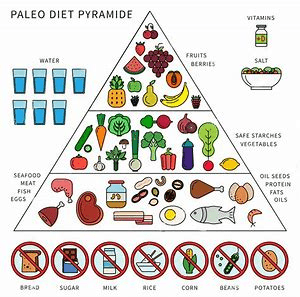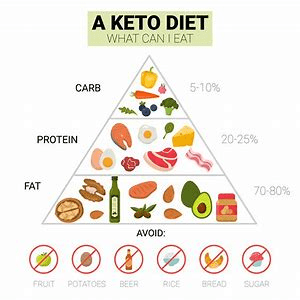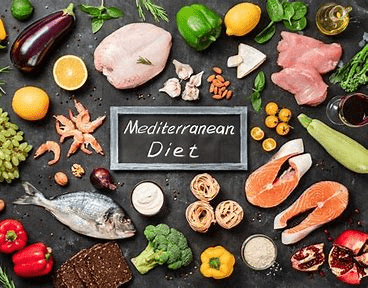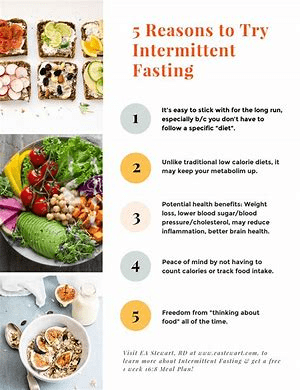Our Diet Plans
Explore our various diet plans tailored to meet your needs.
- Paleo diet: Mimics the diet of early humans, focusing on whole foods.
- Keto Diet: A high-fat, low-carb diet to boost fat loss.
- Mediterranean Diet: A heart-healthy diet rich in fruits and vegetables.
- Intermittent Fasting: A method of eating that alternates between fasting and eating periods.
- Paleo diet:The Paleo Diet: A Return to Our Ancestors' Eating Habits The Paleo diet, often referred to as the Caveman Diet, is based on the premise that humans should eat foods similar to those consumed by our Paleolithic ancestors. The idea is that our bodies are biologically adapted to this ancestral diet and that modern processed foods are the root of many health problems. Key principles of the Paleo diet: Focus on whole, unprocessed foods: Emphasizes fruits, vegetables, lean meats, fish, eggs, nuts, and seeds. Avoid processed foods: Eliminates grains, legumes, dairy, refined sugars, and processed oils. Prioritize nutrient-dense foods: Aims to provide a diet rich in vitamins, minerals, and antioxidants. Potential benefits: Weight loss: By cutting out processed foods and refined sugars, many people find it easier to lose weight. Improved metabolic health: Some studies suggest that the Paleo diet can improve insulin sensitivity and reduce inflammation. Increased energy levels: The focus on whole foods and nutrient density can lead to sustained energy levels. Potential drawbacks: Nutrient deficiencies: Eliminating entire food groups like grains and dairy can lead to deficiencies in calcium, fiber, and certain vitamins. Social challenges: Adhering to the Paleo diet can be difficult in social settings due to limited food options. Sustainability: Relying heavily on meat can be environmentally unsustainable and expensive. It's important to note that while the Paleo diet can be beneficial for some, it may not be suitable for everyone. Consulting with a healthcare professional or registered dietitian before starting any new diet is recommended.

- Ketogenic Diet
The ketogenic diet, often shortened to keto, is a high-fat, low-carbohydrate diet that forces your body into a metabolic state called ketosis.
How does it work? When you drastically reduce your carbohydrate intake, your body begins to burn fat for energy instead of glucose (sugar) from carbs. This process produces ketones, which become the primary energy source for your body. Key characteristics of the keto diet: High-fat: Around 70-80% of your daily calories come from healthy fats like avocados, olive oil, nuts, and fatty fish. Moderate protein: Protein intake is moderate to preserve muscle mass. Very low-carb: Carbohydrate consumption is restricted to around 20-50 grams per day. Potential benefits: Weight loss: Many people experience significant weight loss on the keto diet. Improved blood sugar control: Can be beneficial for individuals with type 2 diabetes. Increased energy levels: Some people report feeling more energized. Reduced appetite: The high-fat content can help control hunger. Potential drawbacks: Nutrient deficiencies: Restricting certain food groups can lead to nutrient deficiencies. Digestive issues: Some people experience constipation or other digestive problems. Keto flu: Short-term flu-like symptoms can occur during the transition to ketosis. Social challenges: Adhering to the keto diet can be difficult in social settings. It's important to consult with a healthcare professional before starting the keto diet, especially if you have any underlying health conditions.

- Mediterranean Diet
The Mediterranean diet is more than just a diet; it's a way of life inspired by the eating habits of countries bordering the Mediterranean Sea, such as Greece, Italy, and Spain.
It emphasizes whole, plant-based foods and healthy fats.
Benefits of the Mediterranean Diet: Heart Health: Reduces the risk of heart disease, stroke, and high blood pressure. Weight Management: Can help with weight loss and maintenance. Improved Blood Sugar Control: Beneficial for people with type 2 diabetes. Reduced Inflammation: Helps combat chronic inflammation. Better Brain Health: May lower the risk of Alzheimer's and dementia. Remember: The Mediterranean diet is a lifestyle, not a strict regimen. It's about enjoying delicious and nutritious food while promoting overall well-being.

- Intermittent Diet
Intermittent fasting (IF) isn't a diet in the traditional sense; it's more about when you eat, rather than what you eat. It involves cycling between periods of eating and fasting.
Potential Benefits: Weight loss: By reducing overall calorie intake. Improved insulin sensitivity: Can help manage blood sugar levels. Cellular repair: Fasting periods might allow the body to focus on cellular repair. Increased growth hormone levels: This can aid in muscle growth and fat loss. Important Considerations: Not suitable for everyone: Pregnant women, people with eating disorders, or those with certain medical conditions should avoid intermittent fasting. Focus on overall health: While intermittent fasting can be beneficial, it's essential to maintain a balanced diet during your eating windows. Listen to your body: It's important to find a fasting method that suits your lifestyle and doesn't lead to excessive hunger or fatigue.
